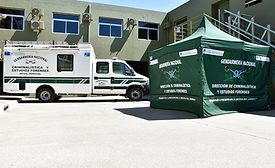Technologies & Solutions
Improving situational awareness via video content analytics is the key to business safety and compliance for COVID-19
Driving business resilience and risk management
October 15, 2020
Education & Training
Compelling insights into career hackers
In 39 seconds, there will be another web application attack.
October 14, 2020
Sign-up to receive top management & result-driven techniques in the industry.
Join over 20,000+ industry leaders who receive our premium content.
SIGN UP TODAY!Copyright ©2024. All Rights Reserved BNP Media.
Design, CMS, Hosting & Web Development :: ePublishing












